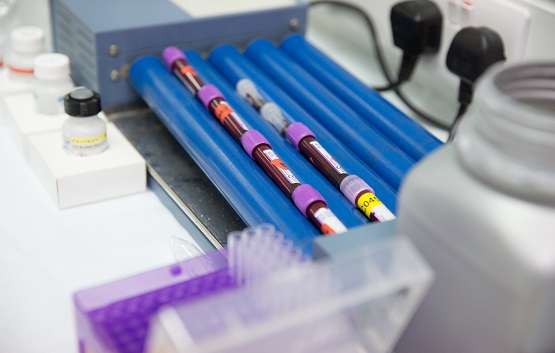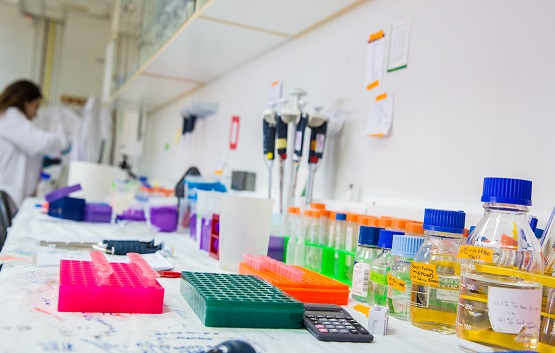Biomedical Sciences
Education
Laboratory Training
The Molecular Genetics of Thalassaemia Department employs advanced molecular techniques and provides high-quality services, which have successfully established it as an international reference centre in its field. In consequence, a large number of foreign and Cypriot scientists visit the laboratory for training, either through personal initiative or through the activities of various thalassaemia organisations. Moreover, undergraduate students frequently perform their summer training, their sandwich-year project or the work for their final-year thesis in the laboratory, and MSc and PhD candidates carry out their experimental work in the research projects of the department. As of this writing, the department has hosted and trained
7 PhD students (since 2005, 4 pending)
3 MSc students (since 2011, 2 pending)
5 BSc students (since 2006)
40 trainees in sabbatical or summer training from their home institution (since 1997)
14 summer internships (since 2003)
as well as dozens of school interns from local schools and through the 2009 Leonardo Da Vinci Mobility Programme for one-week laboratory practice (since 2004)
Taught Courses
The Molecular Genetics of Thalassaemia Department through partnership with the European Genetics Foundation has established the CING as a certified remote training centre for Hybrid Courses run by the European School of Genetic Medicine (ESGM). The Molecular Genetics of Thalassaemia Department regularly organises local transmission of these high-profile remote lectures in combination with a dedicated programme of local complementary workshops that draw on the extensive expertise of all departments of the CING. The courses available through the ESGM can be viewed here.
As part of the CING Postgraducate School, the Molecular Genetics of Thalassaemia Department also organizes the preparatory course Introduction to Molecular Biosciences from August 2013 (IMB, coordinator Carsten W. Lederer) and the main course Molecular Basis of Monogenic Diseases (MM101, coordinator Marina Kleanthous). The latter course is aimed at postgraduate students of biology and medical genetics, reviews all key aspects of the field of monogenic (or: single-gene) disorders and will recommence from September 2013 as part of the CSMM postgraduate programme.








0002.jpg)
